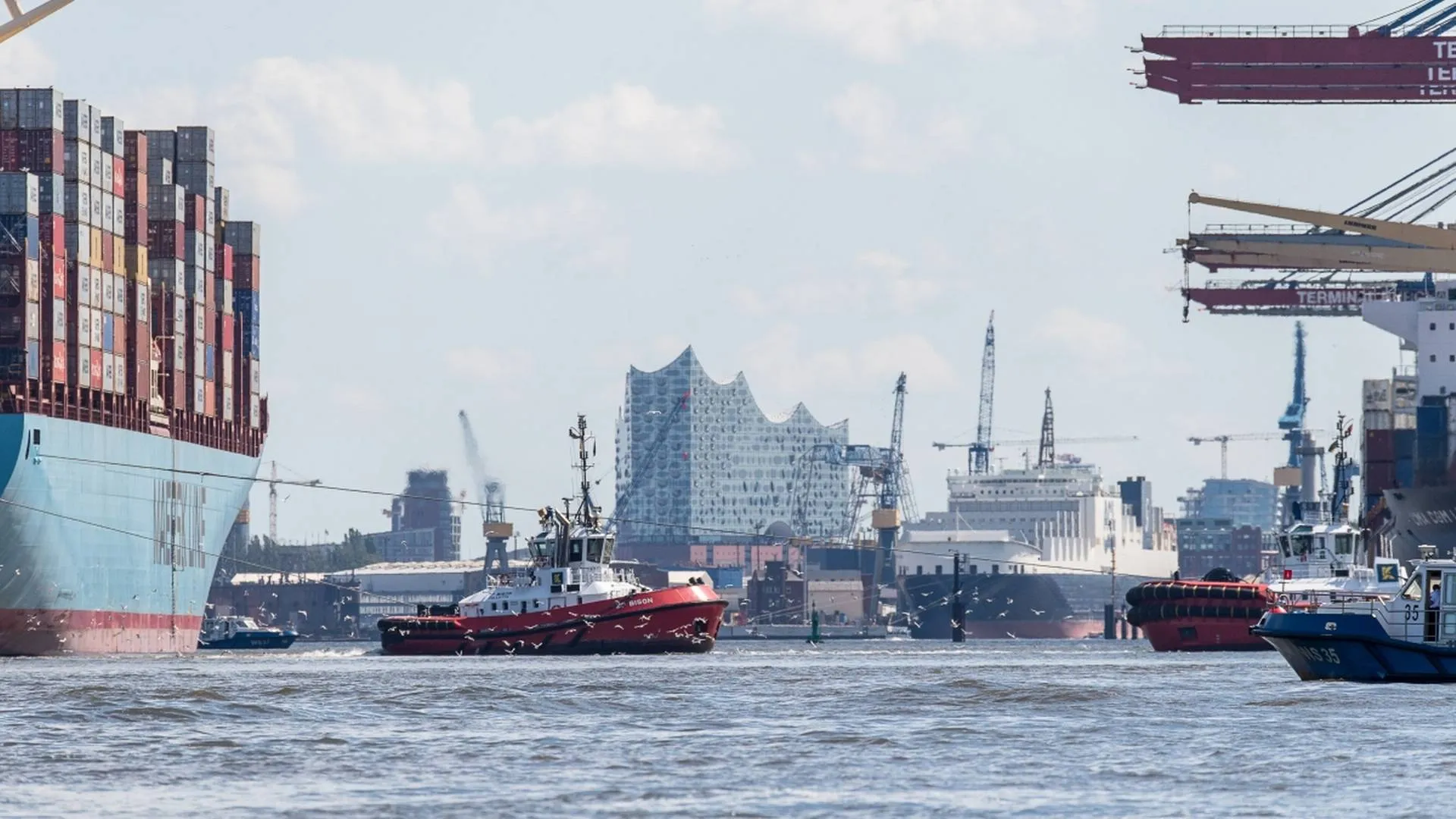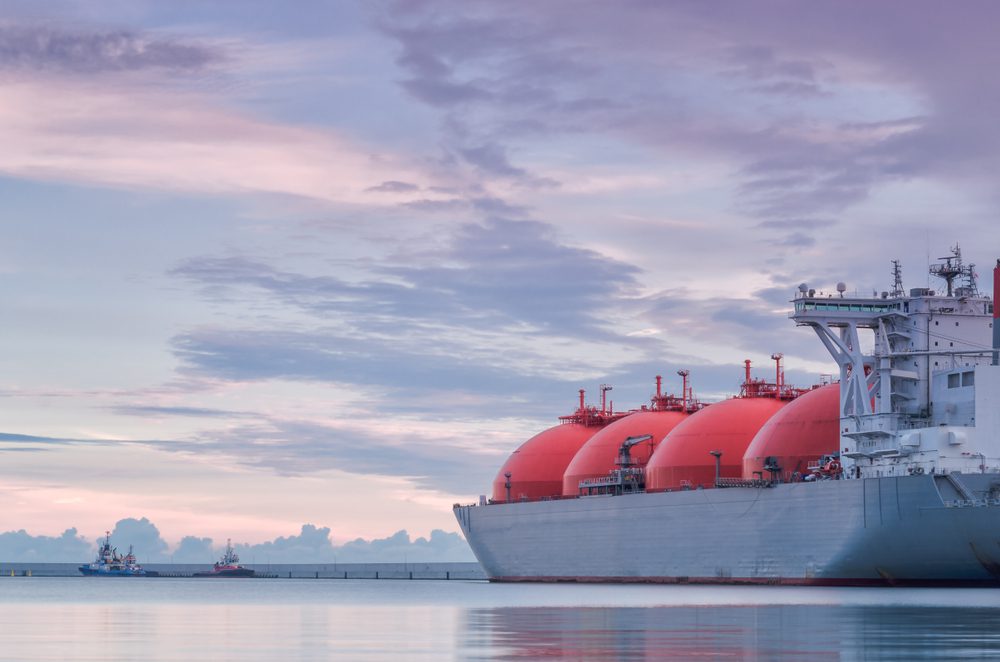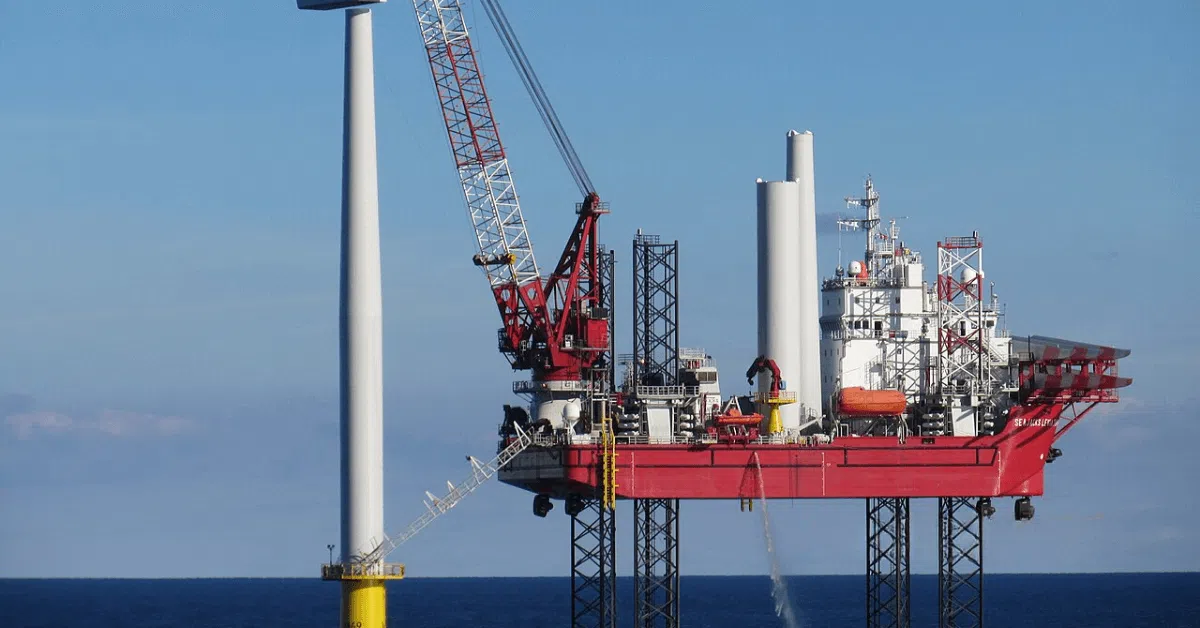
The introduction of Poseidon Principles into the marine insurance market will have wider reaching effects that simply promoting greenhouse gas emissions transparency, as Patrizia Kern, Chair, Poseidon Principles for Marine Insurance (PPMI) explained in London.
Unlike the Poseidon Principles’ namesake for the financial sector, vessels that are responsible for fewer emissions will not be incentivised. Conversely, ship owners will not face the prospect of having coverage withdrawn for vessels that are more polluting in the short term, Patrizia Kern, Chair of PPMI reassured journalists at a press event in London in early May. “We are not going to walk away at the first step.”
Rather than resorting to withdrawing cover, Kern anticipated a situation where PPMI signatories might engage more actively with ship owners to understand their plans to improve the emissions profile of their vessels, or trajectory, as she termed it.
However, the entry into force of the Poseidon Principles for Marine Insurance (PPMI) in May 2022 does represent a potentially highly significant development in establishing climate related financial disclosures as a board level risk that requires mitigation.
The PPMI will initially be used solely for the purposes of direct insurance, where insurers have a direct relationship with the ship owner. There was no intention of applying the PPMI more widely in the insurance industry, such as in the reinsurance market. “The PPMI will just be used in the direct insurance market,” Kern told The Motorship.
However, Kern noted that vessels with a more polluting operational profile might eventually face higher hull and machinery (H&M) insurance costs, if more polluting vessels had the effect of lowering the overall emissions profile of an insurer’s portfolio.
“When we assess whether a vessel is a good risk or not when assessing the [insurance cost], we look at a number of factors, among which emissions will be one,” Kern said. “And you could have a situation where the risk is not financially sustainable.”
Drivers for the Establishment of PPMI
Kern began by recognising insurers’ unique role in promoting responsible environmental stewardship throughout the maritime value chain.
Insurers are involved in providing services at every step in the value chain, ranging from fuel production and bunkering, through to the insurance for the vessels themselves and even the cargoes themselves.

Source: The Motorship
Marine insurers are facing increasing scrutiny from regulators, civil society and NGOs, Kern said.
Meanwhile, insurers are coming under pressure from civil society and NGOs to exit the coal, and to a lesser extent oil and gas sectors, Kern said. The PPMI offered a means of heading off accusations of greenwashing, while gaining insight to enhance strategic decision-making, and address the impacts of climate change.
Benchmarking
The Poseidon Principles for Marine Insurance are built on four principles – Assessment of climate alignment, Accountability, Enforcement, and Transparency – which they share with the Poseidon Principles for Financial Institutions and the Sea Cargo Charter.
This will require signatories to measure the carbon intensity of their hull and machinery portfolios on an annual basis, using the Annual Efficiency Ratio (AER).
The data will be based on the ship owner’s annual submission provided to the IMO’s DCS scheme, which will limit the additional bureaucratic burden of complying with the scheme and ensures that the data will be supplied according to a common reporting framework.
The Motorship notes that the metric has been selected as the IMO DCS does not capture data on the mass of cargo carried on individual voyages, which means it is impractical to attempt to calculate the Energy Efficiency Operational Indicator (EEOI) (see box)
The requirement for the provision of data was likely to be introduced through a standardised covenant clause in insurance contracts, Kern noted. It remains unclear how customers will respond to marine insurance companies attempts to amend existing contracts by introducing reporting requirements.
“This means we will establish a non-physical reporting framework that will enable us to give full transparency on hull and machinery exposure.”
The portfolios will then be assessed for climate alignment (carbon intensity relative to established decarbonisation trajectories). The PPMI is currently basing its climate alignment upon the IMO’s agreed 50% reduction in net emissions by 2050 target. A second trajectory (based on a 100% reduction) against which a fleet’s emissions could be benchmarked would also be provided.
Kern added that Swiss Re, along with AXA XL, was a signatory to the Net Zero Insurance Alliance, which was targeting a 100% reduction in net emissions by 2050.
The first reporting period will take effect by the end of 2022. Each Signatory is expected to will report the overall climate alignment of its shipping portfolio to the Secretariat by the end of November every year.
AER versus EEOI
The selection of AER as the metric against which greenhouse gas emissions can be identified offers several advantages compared with the EEOI metric.
Put simply, the IMO Data Collection System (DCS) does not capture data on cargo mass carried. As the EEOI metric (which is g[CO2]/cargo ton*mile) is based on /mile calculations, it would require the collection of the data before individual vessel baselines can be calculated. This would have the practical effect of delaying the introduction of the PPMI until the data collection exercise was completed.
The AER (/dwt-nm) is calculated using an approximation of the total annual transport work performed by a ship, obtained from its total distance travelled and dwt (in tonne units). The AER suffers by comparison with the EEOI as vessels frequently carry less cargo than their maximum capacity, while the metric does not capture the impact of ballast legs where vessels have no cargo on board.
The weakness of AER from a shipowners’ perspective is that fuel consumption is the only variable that can affect the metric’s result. Slower steaming or cargo capacity reduction are the most readily available options for owners.
Future Scope
Some aspects of the PPMI are still under discussion, Kern said.
“One outstanding question is what are the incentives that the insurance company and the banks will have to create to de risk this transition, because very clearly the transition is going to come with risk… But I promise you we are working very hard to find it.”
Kern also identified that customers were becoming increasingly interested in other aspects of insurers’ portfolios. “We are coming under a lot of pressure from activists, especially in the coal, oil and gas sectors to really exit these sectors.” Kern also added that potential new entrants into the industry frequently identify sustainability as an important criterion when selecting a career.
Meanwhile, EU regulatory pressures also needed to be taken into account. The European Commission is currently finalising plans to introduce an EU Taxonomy for Sustainable Insurance, having held a consultation in 2021 on a proposal to add a social element to the taxonomy on sustainable insurance.
One of the features of the PPMI framework was that it was a flexible framework. “The intention is to add other ESG metrics to the Poseidon Principles for Marine Insurance in future,” Kern added, which would offer insurers the flexibility to respond to upcoming EU regulations.
A significant proportion of the market
However, Kern was at pains to stress that the PPMI was not just a European forum. Ms Kern assessed that the nine signatories represented “around 30% of the market”, although accurate marine insurance market coverage data is not publicly available. Meanwhile discussions are ongoing with nearly two dozen other insurers, which were expected to increase the number of signatories. “A number of interested parties were waiting for the scheme to be set up, and we are receiving interest from parts of the world.”
Signatories to PPMI
The PPMI entered into force once eight or more insurance companies had agreed to sign up to the framework. The Association’s founder members include Swiss Re Corporate Solutions, Gard, Hellenic Hull Management, SCOR, Victor Insurance, Norwegian Hull Club, Fidelis Insurance, Wills Towers Watson, Cefor, EF Marine, Cambiasso Risso, Lockton and the International Union of Marine Insurance.



